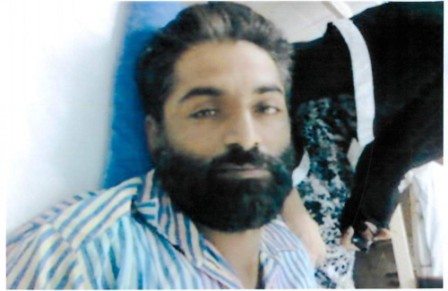Pakistan postpones hanging of disabled death row convict
Lahore
Pakistan has postponed the execution of a paraplegic death row convict following appeals by human rights groups, officials said Tuesday.
Abdul Basit, 43, who was convicted of murder in 2009, contracted tubercular meningitis in 2010 while in prison which left him paralysed from the waist down, according to rights groups and jail officials.
Basit was due to be hanged on Tuesday, but a court delayed the execution after Justice Project Pakistan, the human rights law firm handling his case, raised concerns about how the wheelchair-bound man would mount the scaffold.
"The hanging has been postponed. A magistrate in the morning ordered the postponement because Abdul Basit is a disabled man," Usman, an official at Faisalabad jail where Basit is being held and who goes by one name, told AFP.
According to Justice Project Pakistan, prison guidelines require that a prisoner stands on the gallows and the rope's length is determined by his standing height.
They said in a statement last week that attempting to hang a wheelchair-bound convict may not work.
Another jail official, who requested anonymity, said: "The rules are silent on the hanging of a disabled person. It doesn't explain how to execute a prisoner who can't stand on his legs.
"The hanging has been delayed for the time-being and a new date would be fixed after taking advice from the senior officials."
Basit's mother Nusrat Perveen also confirmed the execution delay, telling AFP that a jail official had called her to inform her "the hanging has been postponed because of Basit's sickness".
"Why do they want his execution? He is already severely sick, what will they get from his hanging?" she added.
Basit's case is the latest to shine a spotlight on Pakistan's decision to lift a six-year moratorium on executions last December, after Taliban militants massacred more than 150 people -- mostly children -- at a school.
Since that time it has executed more than 200 people, including a convicted murderer amid a storm of protests from rights groups that his confession had been extracted by torture and he was a minor at the time of the crime.
Amnesty International estimates that Pakistan has more than 8,000 prisoners on death row, most of whom have exhausted the appeals process.
Supporters argue that the death penalty is the only effective way to deal with the scourge of militancy in the country.
But critics say the legal system is unjust, with rampant police torture, poor representation for victims and unfair trials.
Related Posts

